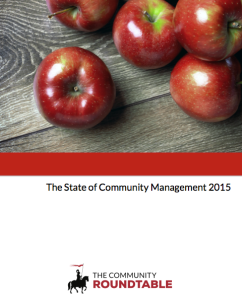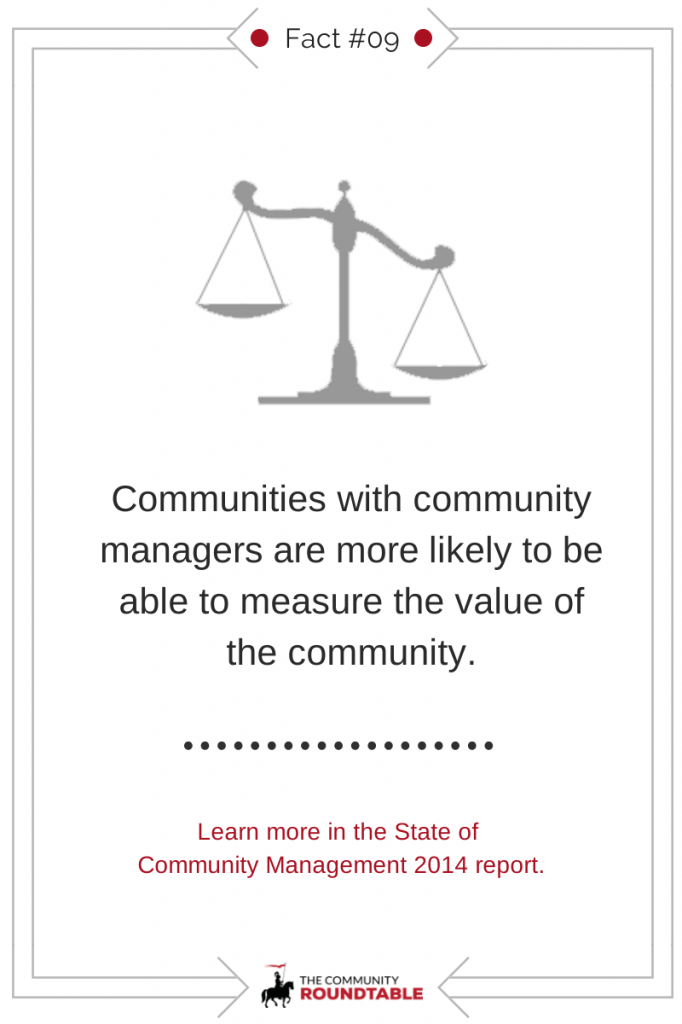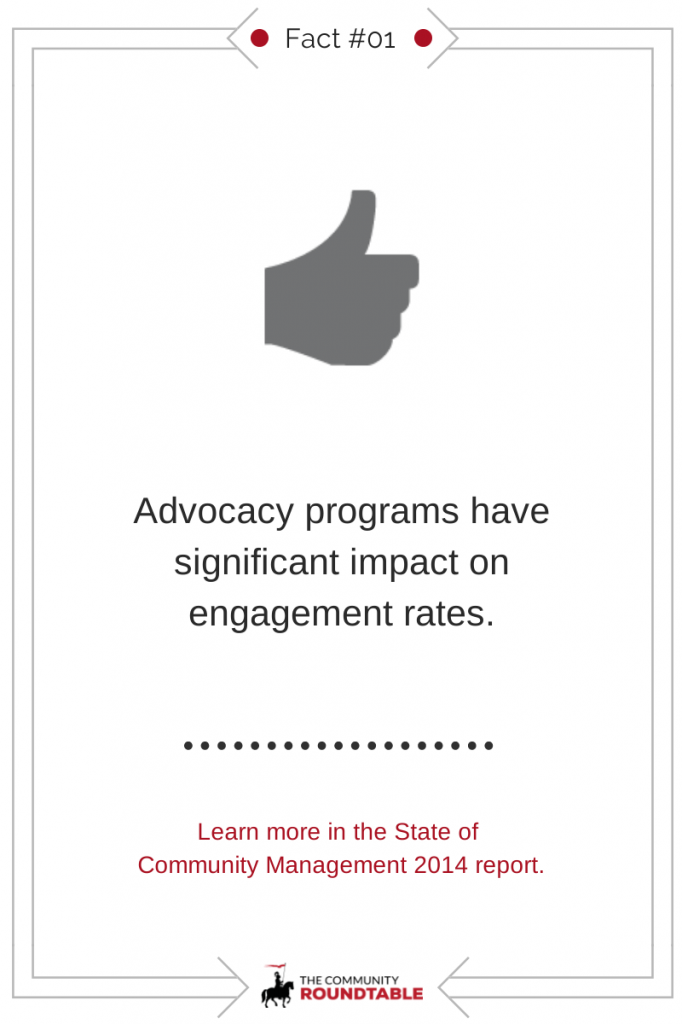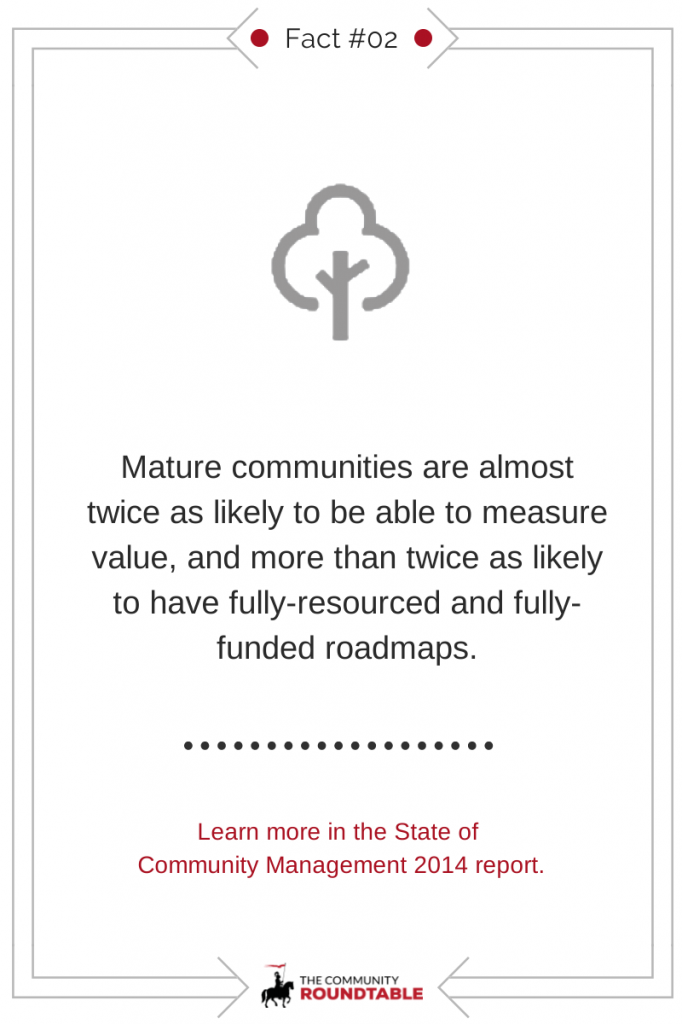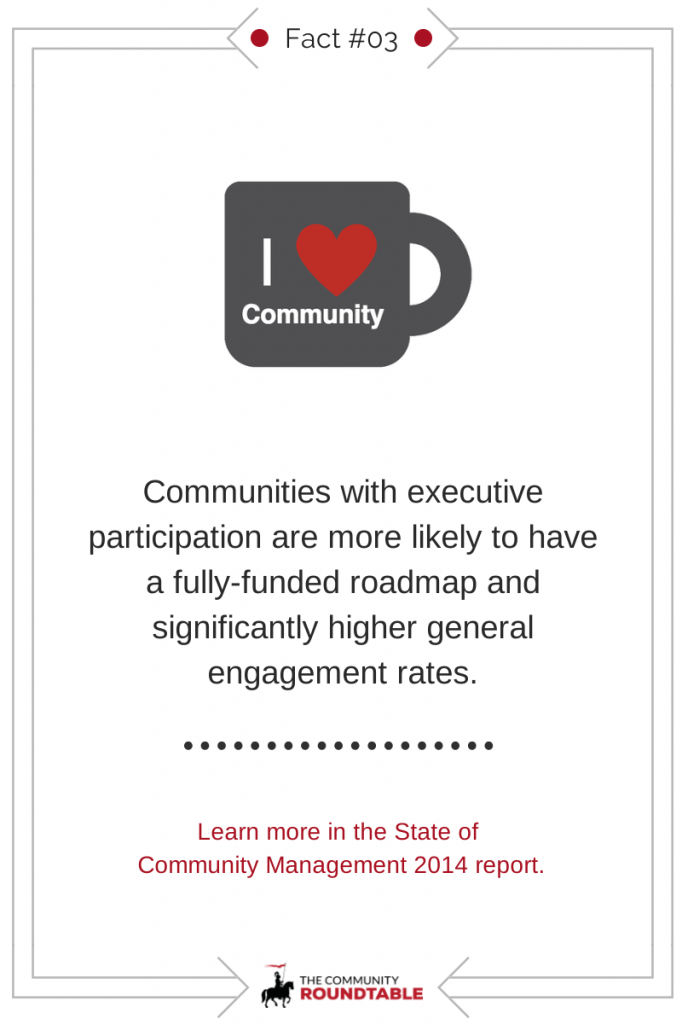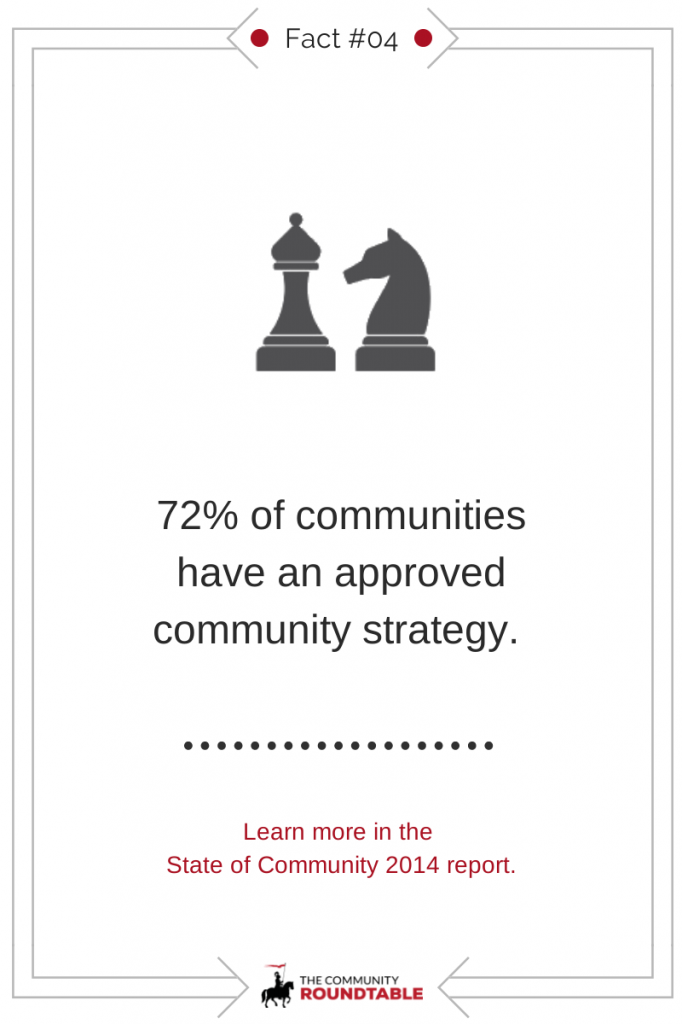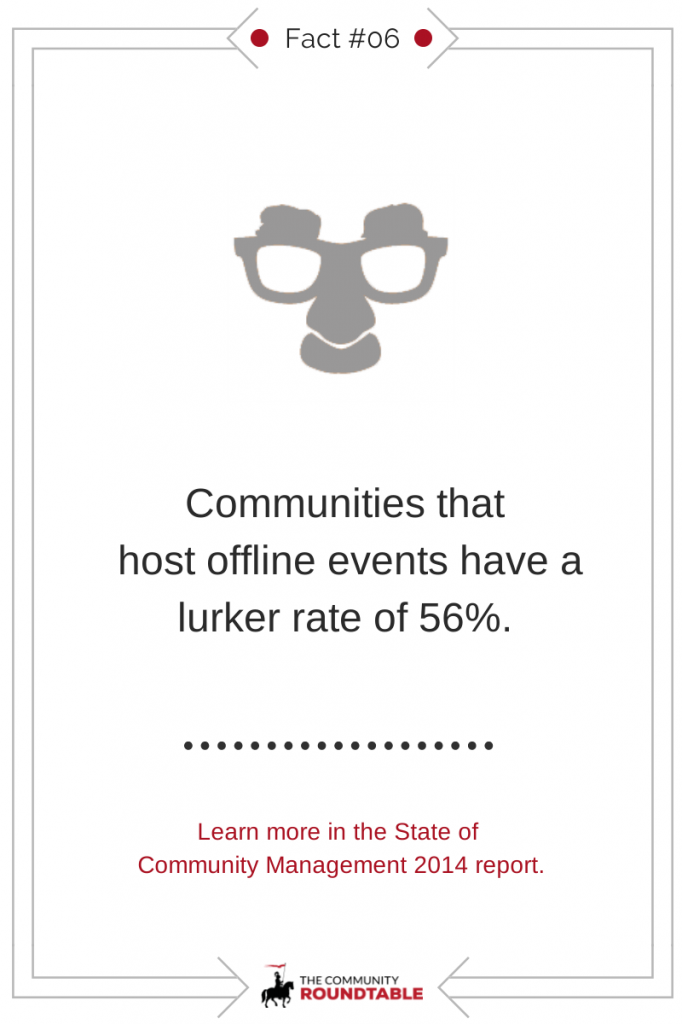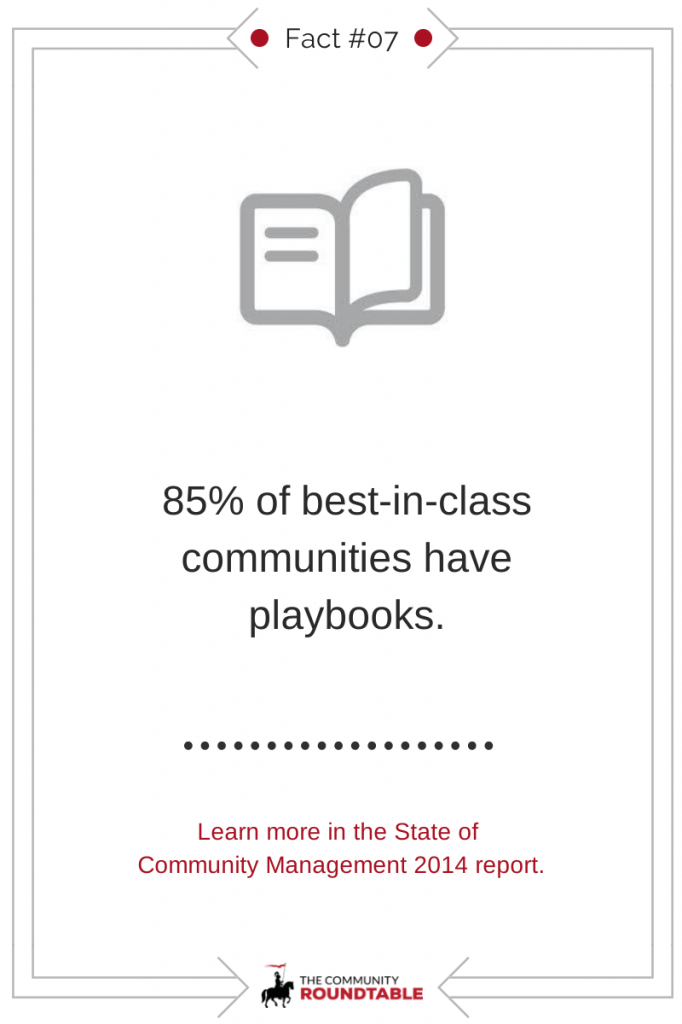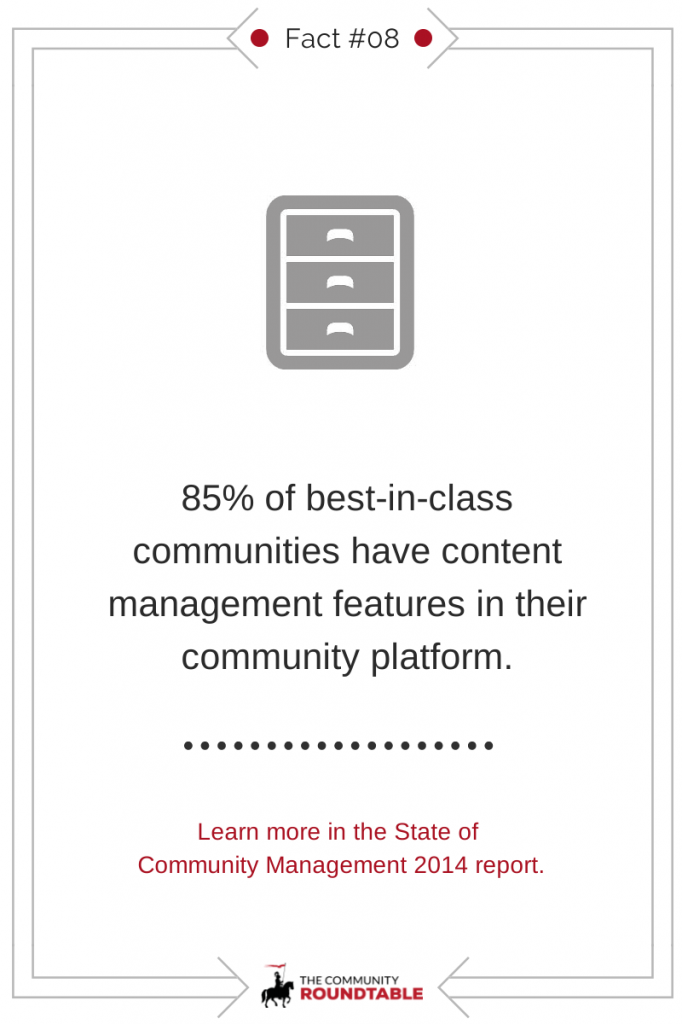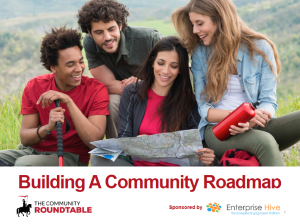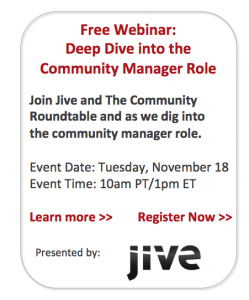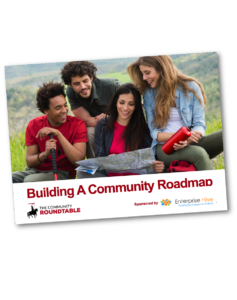By Shannon Abram, Relationship Manager at The Community Roundtable.
If you’re following along regularly you may have noticed that our annual research report – The State of Community Management 2015 was released last week, and we couldn’t be more excited. The SOCM 2015 is the culmination of not just months of data collection, research and design, but years of community expertise distilled into one document. This year our key findings are: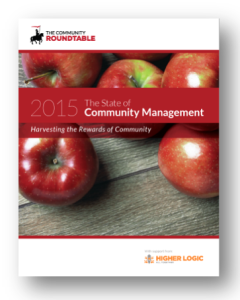
- Strategy: Invest in people and systems, not just platforms
- Operations: Advocacy Programs are More Than a Checkbox
- Tactics: Quick Wins Exist to Improve Engagement
These key findings are the cornerstone for the full report, which provides data that helps you:
- Plan and develop a roadmap
- Prioritize resources effectively
- Educate stakeholders
- Increase your credibility
- Demonstrating your value as a community professional
If you haven’t had a chance to check out the SOCM 2015 yet you can download the full report, for free – here!
Things We Are Reading This Week
How Can I Use Gamification for Community Engagement? – Gamification is a hot topic in TheCR Network, and among community managers at large. In fact, – nearly half of our surveyed communities in the State of Community Management 2014 employed some form of gamification (and more than 60% of best-in-class communities do). As gamification tools become more common, more community managers are looking to tap into gamification as part of their efforts to increase engagement. It’s more than just “turning it on.” Everything from how you structure rewards, badges and levels to general usage patterns can have a significant impact on the effectiveness of your effort.
11 conferences today’s community professional can’t miss – Community, social, marketing – it’s all about driving business value. Keep up with the latest in innovative growth tactics at these conferences.
It’s here! The State of Community Management 2015 Report –
Each year, we look forward to providing more data to support the work of online community professionals – those that enable, facilitate and inspire network of people to contribute in ways that generate more value than the sum of each individual contribution.
3 Ideas For Growing Your Community Marketing Team – Influitive – What B2B community managers should consider when expanding their marketing team.
Richard Branson Is Right: Time Is the New Money – In the Participation Age, a new form of payment is emerging: time.
New Social Media and Community Jobs
- Senior Social Business Strategy Consultant – East Region – Jive Software – Boston, MA
- Community Manager – Rally Health – San Francisco, CA
- Enterprise Community Manager – First American Financial – Santa Ana, CA
- Director, Social Media Strateg – Leading Financial Services Firm – Boston, MA
- Director of Network Relations – Scion Staffing – Stanford, CA
- Community Manager – Sep Media – Los Angeles, CA
- Pro Sports – Director, Social Media – WorkInSports – New York City, NY
- Marketing and Communications Director – Non Profit Organization – Oakland, CA
- Talent Community Manager – Horizon Media – Entertainment and Media Industry – New York City, NY
- Director, Social Media & Community Marketing – Leading Online Shopping Website – New York City, NY
- Community Director – Bay Shore Staffing – Boston, MA
- Associate Director, Digital Marketing – Sony Music Entertainment – Entertainment and Media Industry – New York City, NY
- Social Business Executive – Marketing Communities & Advocacy – USAA – San Antonio, TX
- Community Manager – BeMyApp – Boise, ID
- Community Manager – Product Ninja – San Jose, CA
- Community Manager – Simple Mills, Inc. – Chicago, IL
- Community Manager – ThinkCERCA – Chicago, IL
- Community Manager – Tendr – Brooklyn, NY
- Community Manager, Consumer Operations – Google – Mountain View, CA
- Community Manager, Social Media, Consumer – T-Mobile – Bellevue, WA
—
Looking for community peers to chat with, vent to and learn from? Check out our Facebook group and make some new community friends!
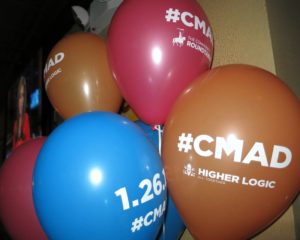 The fifth Friday of 2015 is in the books, and this one comes at the end of a jam-packed week at The Community Roundtable, where we celebrated #CMAD,
The fifth Friday of 2015 is in the books, and this one comes at the end of a jam-packed week at The Community Roundtable, where we celebrated #CMAD, 